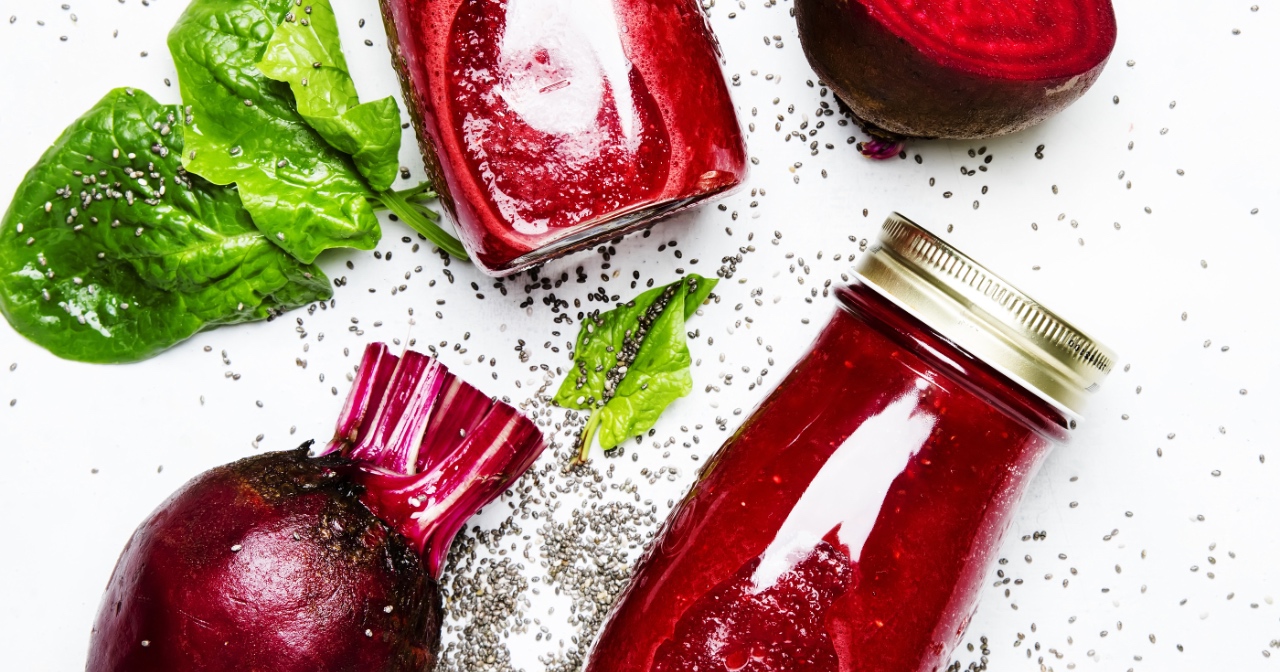Listen on: Apple Podcasts | Spotify
Nitric oxide benefits your heart and enhances performance. Interestingly, nitric oxide levels are increased by a dietary substance that’s often demonized as a cancer and cardiovascular disease-causing compound: nitrate.
Nitrate, found in some vegetables and processed meats, looks like it offers much more benefit than risk. Here’s what you need to know about nitrate (NO3), nitrite (NO2), and nitric oxide (NO).

Feel Better Fast. Guaranteed.
Energy+, EDGE, and MentaBiotics make up the Happy Juice supplement stack, with ingredients clinically proven to:
- decrease anxiousness scores by 55%
- decrease irritability scores by 60%
- decrease fatigue by 64%
- decrease anger 54%
- decrease tension by 45%
- decrease confusion by 43%
- decrease overall distress by 49%
- increase good bacteria by 70%
- decrease negative mood by 105%
- increase positive mood by 211%
What are nitrate, nitrite, and nitric oxide?
In health and nutrition circles, nitrates and nitrites often have a bad reputation. No doubt, you’ve heard that processed and cured meats are bad because they contain preservatives, including nitrates and nitrites.
Unfortunately, they’re demonized based on correlation, not causation.
Many studies associate processed meats with an increased risk of heart disease and cancer. However, correlation does not prove causation. The studies cannot prove that the processed meat causes heart disease and cancer. They only show that people who eat a lot of such foods get cancer and heart disease more often. It could be other factors in their diet and lifestyle.
Before refrigeration, curing meats allowed people to eat a much healthier, higher-protein diet than they could have if they couldn’t have preserved meat.
Interestingly, a significant amount of research shows that nitrate-rich vegetables offer health benefits. Yet, your body responds to nitrate in processed meats just as it does in vegetables.
I’m not suggesting people skip vegetables altogether and eat Jack Link’s jerky every day. I only point it out so that those who make nutrition recommendations to the public don’t mislead people into believing jerky is poison while beetroot is a superfood.
Nitrate metabolism
When you eat nitrate-rich foods, your salivary glands and bacteria on your tongue convert nitrate (NO3) to nitrite (NO2). As NO2 moves through your digestive tract, your stomach converts some nitrite to nitric oxide (NO). Most nitrite gets absorbed as-is and enters your circulation, where other enzymes convert nitrite to NO.
Nitric oxide, then, plays an essential role in:
- vasodilation, which enhances blood flow
- muscle contraction
- angiogenesis
- mitochondrial respiration
- mitochondrial biogenesis
- glucose uptake
- calcium balance, which affects muscle contraction
You can also increase nitric oxide levels by supplementing with the amino acids l-arginine or l-citrulline.
Nitrate consumption
The acceptable daily intake (ADI) is 3.65 mg/kg body weight. However, some studies use almost double that amount when looking at the ergogenic benefits.
About 80% of nitrate consumption comes from vegetables, but they can be found in everything from leafy greens to lunch meat. The following are common dietary sources of nitrates:
| Dietary Nitrate Sources | |
|---|---|
| Bacon | Beef, turkey, elk, or other jerky |
| Beetroot | Bologna |
| Corned beef | Grains |
| Ham | Hotdogs |
| Leafy greens (lettuce, spinach) | Lunch meat |
| Mustard greens | Nuts |
| Oilseeds | Salami |
| Sausage | Tubers |
Health Benefits
Contrary to popular belief, nitrate consumption is safe and even essential for health. The following are the most well-known health benefits of nitrate consumption and increased NO levels.
Improved endurance
Nitrates, such as those found in green leafy vegetables, beetroot, or beef jerky, dilate blood vessels, increasing blood flow and lower blood pressure. The decreased pressure may relieve symptoms of angina pectoris and congestive heart failure.
A 2007 study (Larsen et al.) assessed the effect of sodium nitrate supplementation on cycle performance. Supplementation reduced oxygen demand during exercise, which means the study men could do the same amount of work while expending less energy.
In a 2009 study (Larsen et al.), a group of men consumed a beetroot supplement or a placebo. Beetroot contains a high concentration of nitrate. Supplementation again reduced oxygen consumption like in the previous study. Also, they experienced a significant increase in time to exhaustion. At the same relative intensity, the cyclists were able to exercise longer before reaching fatigue.
Initially, researchers looked at the effects of nitrate supplementation over a few days. A longer study of 15 days (Vanhatalo et al.) found that benefits persisted for a longer timeframe. Would people experience benefits for months or even years of consistent use? That question cannot be answered at this time.
In a real-world athletic setting (Lansley et al.), beetroot juice supplementation improved 4-km and 16.1km cycling time trials. In another cycling study (Cermak et al.), beetroot supplementation improved peak power production and improved time-trial performance once again.
From a sports performance standpoint, a higher intake of nitrate improves endurance performance.
Enhanced recovery
Enhancing nitric oxide probably won’t improve strength or power, but it might enhance recovery from most training types.
By stimulating vasodilation, you’re able to deliver nutrients to cells and waste away from cells faster, potentially improving recovery.
Heart health
Whether it’s related to disease or aging, a diminished ability to produce nitric oxide leads to atherosclerotic lesion formation, leading to various forms of cardiovascular disease.
Organic nitrates make up a group of medical therapies for cardiovascular issues. They include glyceryl trinitrate, isosorbide dinitrate, isosorbide 5-mononitrate, and pentaerythritol tetranitrate. However, the body quickly develops a tolerance for these medications, so other nitric oxide-enhancing compounds could provide better long-term benefits.
Since nitrate consumption improves blood flow and reduces oxygen consumption, it makes sense that it improves physical performance in those with cardiovascular disease.
In a small study (Kenjale et al.) of patients with peripheral arterial disease (PAD), beetroot supplementation helped patients walk further before experiencing their all-too-common leg pain, walk further in general, and experience lower blood pressure levels.
Diabetes management
Nitric oxide levels are lower in people with type II diabetes. The reduced NO levels can lead to vessel damage and nephropathy.
In one study, increasing nitric oxide levels improved insulin sensitivity, so an NO-increasing supplement may play a valuable role in diabetic management. However, patients must address their diet and pancreatic function as well.
Enhanced erectile function
Erectile dysfunction has multiple causes, including performance anxiety, relationship problems, depression, neurogenic dysfunction, low testosterone levels, heart disease, trauma, and drug side effects. I stress this point because guys often hear of a potential libido solution and jump on board without identifying the root cause.
That said, as a vasodilator, low nitric oxide levels compromise erectile function.
Raising nitric oxide improves erections by increasing blood flow and relaxing smooth muscle, allowing the penis to get harder. You could accomplish this through sodium nitrate, beetroot, l-arginine, or l-citrulline consumption.
Risks of Nitrate Consumption
The two most common side effects of nitrate consumption are headaches and low blood pressure.
However, the greater concern of nitrate consumption is related to nitrite’s potential to react with dietary amines from protein, which then form nitrosamines. So far, these beliefs are just that; beliefs.
Many of the same people who warn of nitrate consumption warn against creatine monohydrate supplementation for the same reason. Research does not support the cause for concern, especially at the doses recommended for supplementation.
One side effect specific to beetroot alone is the formation of red urine and stool. If you drink beetroot juice and it happens to you, there’s no need for panic. It’s normal
Summary
Sodium nitrate, beetroot extract, l-citrulline, or l-arginine?
Which is better: plain sodium nitrate, beetroot extract, or l-arginine?
The answer to this question probably depends on the context.
Could you benefit from the sodium nitrate in a package of beef jerky? Sure. But you probably wouldn’t use the beef jerky before exercise. Yet, the jerky would be helpful on an extended hike, providing you with much-needed sodium, protein, and the nitrate which could reduce the energy you need to keep your feet moving.
L-arginine and l-citrulline don’t contain any sodium, so they might be a better option than sodium nitrate for those with high blood pressure. L-citrulline also reduces delayed onset muscle soreness, so it has an extra, unrelated benefit.
Though it’s the most expensive option, beetroot supplementation could be the best option for sports performance and health. In addition to the nitrate concentration, beetroot also contains antioxidants, resveratrol, and quercetin.
Improving nitric oxide levels seems to benefit endurance athletes and those at risk for cardiovascular disease.
While you could increase your nitrate levels by eating more beets and green, leafy vegetables or possibly eating more cured meats, it’s easier for most people to supplement.
References
Bailey, Stephen J., et al. “Dietary Nitrate Supplementation Reduces the O2 Cost of Low-Intensity Exercise and Enhances Tolerance to High-Intensity Exercise in Humans.” Journal of Applied Physiology (Bethesda, Md.: 1985), vol. 107, no. 4, Oct. 2009, pp. 1144–55. PubMed, doi:10.1152/japplphysiol.00722.2009.
Brkić, Danijel, et al. “NITRATE IN LEAFY GREEN VEGETABLES AND ESTIMATED INTAKE.” African Journal of Traditional, Complementary, and Alternative Medicines, vol. 14, no. 3, Mar. 2017, pp. 31–41. PubMed Central, doi:10.21010/ajtcam.v14i3.4.
Burnett, Arthur L. “The Role of Nitric Oxide in Erectile Dysfunction: Implications for Medical Therapy.” The Journal of Clinical Hypertension, vol. 8, no. s12, 2006, pp. 53–62. Wiley Online Library, doi:https://doi.org/10.1111/j.1524-6175.2006.06026.x.
Derave, Wim, and Youri Taes. “Beware of the Pickle: Health Effects of Nitrate Intake.” Journal of Applied Physiology, vol. 107, no. 5, American Physiological Society, Nov. 2009, pp. 1677–1677. journals.physiology.org (Atypon), doi:10.1152/japplphysiol.00969.2009.
França-Silva, Maria S., et al. “Organic Nitrates: Past, Present and Future.” Molecules, vol. 19, no. 9, Sept. 2014, pp. 15314–23. PubMed Central, doi:10.3390/molecules190915314.
Fung, H. L. “Do Nitrates Differ?” British Journal of Clinical Pharmacology, vol. 34, no. Suppl 1, 1992, pp. 5S-9S. Jones, Andrew M. “Dietary Nitrate Supplementation and Exercise Performance.” Sports Medicine (Auckland, N.z.), vol. 44, no. Suppl 1, 2014, pp. 35–45. PubMed Central, doi:10.1007/s40279-014-0149-y.
Kenjale, Aarti A., et al. “Dietary Nitrate Supplementation Enhances Exercise Performance in Peripheral Arterial Disease.” Journal of Applied Physiology, vol. 110, no. 6, June 2011, pp. 1582–91. PubMed Central, doi:10.1152/japplphysiol.00071.2011.
Larsen, F. J., et al. “Effects of Dietary Nitrate on Oxygen Cost during Exercise.” Acta Physiologica (Oxford, England), vol. 191, no. 1, Sept. 2007, pp. 59–66. PubMed, doi:10.1111/j.1748-1716.2007.01713.x.
Ma, Linsha, et al. “Nitrate and Nitrite in Health and Disease.” Aging and Disease, vol. 9, no. 5, Oct. 2018, pp. 938–45. PubMed Central, doi:10.14336/AD.2017.1207.
Pérez-Guisado, Joaquín, and Philip M. Jakeman. “Citrulline Malate Enhances Athletic Anaerobic Performance and Relieves Muscle Soreness.” Journal of Strength and Conditioning Research, vol. 24, no. 5, May 2010, pp. 1215–22. PubMed, doi:10.1519/JSC.0b013e3181cb28e0.
Piatti, PierMarco, et al. “Long-Term Oral l-Arginine Administration Improves Peripheral and Hepatic Insulin Sensitivity in Type 2 Diabetic Patients.” Diabetes Care, vol. 24, no. 5, American Diabetes Association, May 2001, pp. 875–80. care.diabetesjournals.org, doi:10.2337/diacare.24.5.875.
Tessari, Paolo, et al. “Nitric Oxide Synthesis Is Reduced in Subjects With Type 2 Diabetes and Nephropathy.” Diabetes, vol. 59, no. 9, Sept. 2010, pp. 2152–59. PubMed Central, doi:10.2337/db09-1772.
Vanhatalo, Anni, et al. “Acute and Chronic Effects of Dietary Nitrate Supplementation on Blood Pressure and the Physiological Responses to Moderate-Intensity and Incremental Exercise.” American Journal of Physiology – Regulatory Integrative and Comparative Physiology, vol. 299, no. 4, 4, American Physiological Society, 2010, pp. R1121–31.



